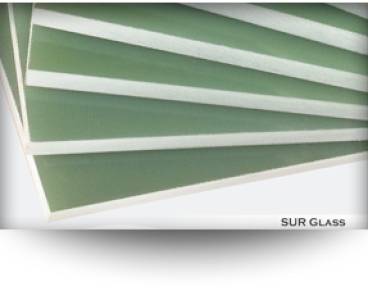Description
Fiber Glass Laminates: Superior Strength and Versatility
Fiber glass laminates are high-performance composite materials offering an exceptional combination of strength, durability, and lightweight design. These materials are created by bonding layers of fiberglass cloth or mat with a resin binder, typically polyester, epoxy, or vinyl ester. This process results in a strong, stiff, and corrosion-resistant material suitable for a wide range of applications.
Key Features & Benefits:
- High Strength-to-Weight Ratio: Fiber glass laminates provide exceptional strength and rigidity while remaining significantly lighter than comparable materials like steel or aluminum. This makes them ideal for applications where weight reduction is crucial.
- Corrosion Resistance: Unlike many metals, fiber glass laminates are highly resistant to corrosion, rust, and degradation from exposure to moisture, chemicals, and UV radiation. This extends their lifespan and reduces maintenance requirements.
- Design Flexibility: Fiber glass laminates can be molded and shaped into complex geometries, offering unparalleled design flexibility. They can be easily customized to meet specific application needs.
- Electrical Insulation: These laminates possess excellent electrical insulation properties, making them suitable for applications requiring electrical protection.
- Cost-Effectiveness: While the initial cost may vary depending on the specific resin and fiber type, fiber glass laminates often offer a cost-effective solution compared to other high-performance materials, particularly considering their long lifespan and reduced maintenance.
- Low Maintenance: Their inherent resistance to corrosion and degradation minimizes the need for frequent maintenance and repairs.
Types of Fiber Glass Laminates:
The properties of fiber glass laminates can be tailored by varying the type and quantity of fiberglass reinforcement and the resin system used. Common variations include:
- Polyester Laminates: Offer a good balance of strength, flexibility, and cost-effectiveness. Suitable for many general-purpose applications.
- Epoxy Laminates: Provide superior chemical resistance, higher strength, and better mechanical properties compared to polyester laminates. Ideal for demanding applications.
- Vinyl Ester Laminates: Combine the benefits of both polyester and epoxy resins, offering a balance of strength, chemical resistance, and cost.
Applications:
Fiber glass laminates find extensive use in a diverse range of industries and applications, including:
- Automotive: Body panels, structural components, and interior parts.
- Marine: Boat hulls, decks, and other marine structures.
- Aerospace: Aircraft components, radomes, and other lightweight structures.
- Construction: Roofing panels, cladding, and structural reinforcement.
- Electrical: Insulating panels, circuit boards, and other electrical components.
- Chemical Processing: Tanks, pipes, and other corrosion-resistant equipment.
- Sporting Goods: Surfboards, kayaks, and other recreational equipment.
Specifications:
Specific specifications, such as thickness, strength, and chemical resistance, vary significantly depending on the type of fiberglass, resin, and manufacturing process used. Contact us for detailed specifications and to discuss your specific requirements.
Choosing the Right Fiber Glass Laminate:
Selecting the appropriate fiber glass laminate depends heavily on the intended application and the specific performance requirements. Factors to consider include:
- Required strength and stiffness.
- Chemical resistance.
- Temperature resistance.
- Cost considerations.
We offer a wide range of fiber glass laminates to meet your diverse needs. Contact our team of experts to discuss your project and find the perfect solution.
